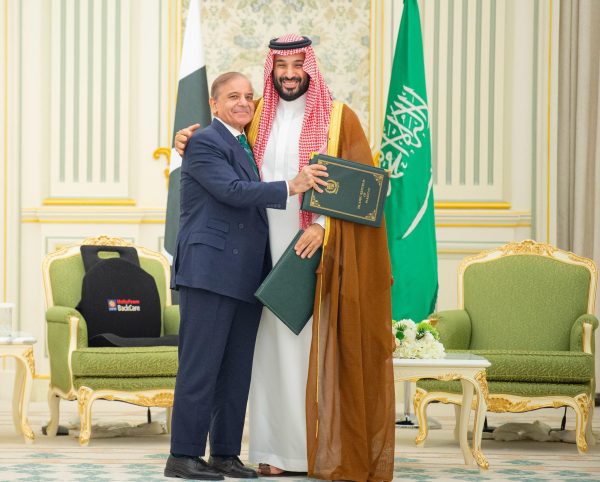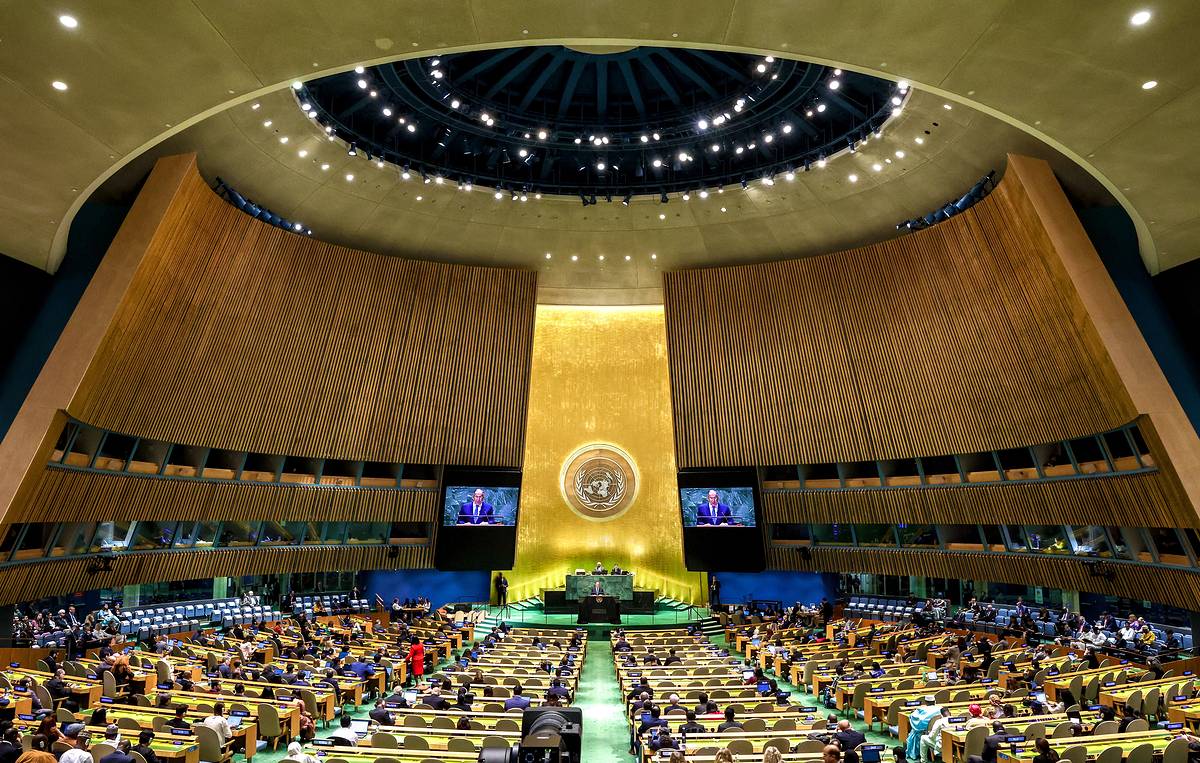By Umair Jamal
Copyright thediplomat

Pakistan and Saudi Arabia have signed a mutual defense agreement, under which any aggression against one state will be considered an attack on both. “This agreement, which reflects the shared commitment of both nations to enhance their security and to achieve security and peace in the region and the world, aims to develop aspects of defense cooperation between the two countries and strengthen joint deterrence against any aggression,” according to a statement issued by the Saudi Press Department. “The agreement states that any aggression against either country shall be considered an aggression against both,” the statement added. The agreement is unprecedented for many reasons. The language of the pact indicates that Pakistan and Saudi Arabia are aiming to elevate bilateral military cooperation to a whole new level. Bilateral defense cooperation goes back several decades. Pakistan has historically deployed soldiers to Saudi Arabia for training, advisory, and defensive missions, including border protection. However, in the past, bilateral defense agreements were primarily informal rather than being binding on both parties. Arguably, this is Pakistan’s most significant formal defense pact in decades and the first such agreement that an Arab Gulf state has inked with a nuclear-armed partner. The signing ceremony itself was unlike past low-key arrangements between the two sides. It was attended by Pakistan and Saudi Arabia’s top civil-military leadership. There was a lot of fanfare, excitement, and media coverage of the deal from both sides. A tweet from Saudi Arabia’s minister of defense, Prince Khalid bin Salman, captured the essence of the deal. “KSA [Kingdom of Saudi Arabia] and Pakistan [are now] one front against any aggressor,” the Prince wrote. “Always and forever,” he added, next to images of the flags of the two countries. The prominence given to the deal suggests a purposeful effort by both parties to formalize the alliance, especially in light of the swiftly evolving regional dynamics in West Asia. The pact comes against a backdrop of eroding trust in the United States’ security guarantees for Gulf states. Such apprehensions have been exacerbated by events like Israel’s attack on Qatar last week, and the broader tensions in West Asia involving Iran, Lebanon, Yemen, and the Gaza crisis. Arguably, signing a strategic defense deal with Pakistan offers Saudi Arabia a hedge against some of these threats. While not much has been made public regarding the nature of protection Pakistan could offer to Saudi Arabia in a war scenario, a Saudi official told Reuters that “this is a comprehensive defensive agreement that encompasses all military means.” That said, one cannot be certain how the idea of “all military means,” which supposedly includes conventional and non-conventional forces, will take shape in practice. What remains clear is that there seems to be a growing realization in Arab capitals regarding Pakistan’s military capabilities and its usefulness for their defense. From Pakistan’s viewpoint, there is an increasing interest in encouraging Arab nations to align their security frameworks with Pakistan, which may create various economic and diplomatic opportunities for Islamabad. Two recent statements from top Pakistani officials hint at that thinking. First, Pakistan’s Foreign Minister Ishaq Dar has supported the idea of a joint Arab security force to defend regional states after Israel’s recent airstrikes on Qatar. When asked about Pakistan’s role in such a force, the foreign minister said that Islamabad will “discharge its duty” toward the Muslim community. Second, Pakistan appears interested in forming similar agreements with other Gulf States like Qatar and the United Arab Emirates. Defense Minister Khawaja Asif mentioned that the possibility of other Arab nations joining the mutual defense deal between Pakistan and Saudi Arabia cannot be ruled out. The “doors are not closed for such developments,” he said. According to government officials, the agreement wasn’t made in haste. It has been in development for months and was the result of coordination between Pakistan’s top civil and military leadership, and the Saudi Kingdom. From Pakistan’s perspective, the deal is a significant win with respect to Islamabad’s rivalry with New Delhi. The agreement comes just a few months after Pakistan and India’s four-day war. Moreover, it comes in the backdrop of India trying to strategically cultivate its defense and economic ties with Saudi Arabia in recent years. “The agreement directly and adversely impacts India,” wrote Sushant Singh, a lecturer at Yale University and consulting editor at Caravan magazine. Meanwhile, the Indian Foreign Office has downplayed the significance of Pakistan and Saudi Arabia’s pact, stating that “the government was aware that this development, which formalizes a long-standing arrangement between the two countries, had been under consideration.” “We will study the implications of this development for our national security as well as for regional and global stability,” said Foreign Office spokesperson Randhir Jaiswal. It is crucial to consider how this development might influence India’s conflict with Pakistan and whether this agreement could disrupt its relationship with Saudi Arabia, given that Riyadh is now a strategic defense partner with its archrival, Islamabad. In any case, Israel’s strike on Qatar seems to have increased Pakistan’s geopolitical significance for Gulf states and added another layer of complexity to Middle Eastern and South Asian dynamics. The coming days and weeks will reveal whether this agreement forms the foundation of a broader GCC-Pakistan defense pact or remains a Saudi-Pakistan bilateral agreement aimed at countering potential threats from Israel and other actors. Saudi officials would likely want to present it as a full show of military support from Pakistan in case of an attack on its soil. Equally, Pakistan would look at the deal as a strategic move against India and Israel, which it considers threats to its national security. Pakistan has accused India and Israel of collaborating during the recent four-day war. In summary, Pakistan may likely have secured some sort of Saudi financial backing through this agreement, which will help stabilize its economy — at least in the short term. This agreement could also offer Pakistan a buffer against any sudden economic shocks. It would be noteworthy to assess the precise obligations Pakistan will assume under this agreement with Saudi Arabia, along with any possible challenges that might emerge. Nonetheless, Pakistan seems to have gained an important diplomatic and geopolitical advantage by somewhat tying its own security to Saudi interests. This connection could afford Pakistan substantial influence in addressing future military or economic difficulties, whether related to India or other concerns.



